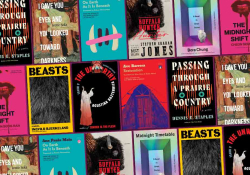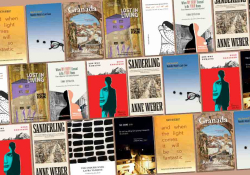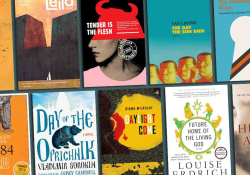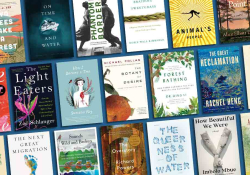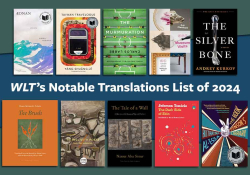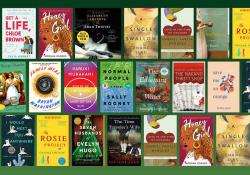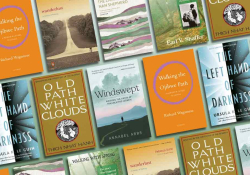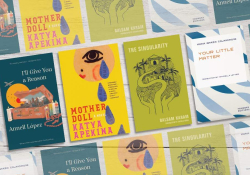50 Years of Literary Activism: The WLT Readers’ Poll
Earlier this summer, the editors of WLT invited more than two dozen writers to nominate one book, published since 1969, that most influenced their extraliterary commitments, along with a brief statement explaining their choice.
Now, we invite readers to vote on their favorite title from the following longlist during the next two weeks (August 1–15) on the ballot that follows the book descriptions. One ballot per reader, please. The titles have been listed in chronological order.
The top 5 list will then be published in the fall issue. Stay tuned on Twitter by following the #literaryactivism hashtag.
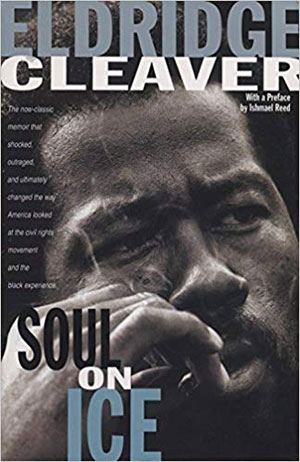 Eldridge Cleaver
Eldridge Cleaver
Soul on Ice
McGraw-Hill, 1968
My selection is one year shy of the request: 1968. Soul on Ice is a collection of essays written by former Black Panther Eldridge Cleaver while imprisoned. Nineteen sixty-eight provided a revolutionary pretext for Red Power during the 1969 Alcatraz occupations. Questioning the tactics of political revolution and at whose expense, Cleaver notes his use of rape as a symbolic form of insurrection—a nearly reparational act striking at the most precious mythological target of Americana: white women. Soul on Ice bleeds with the lived consequences of systemic violence, a future love/hate story constantly interrupted by hauntings from past lives.—Crystal Z Campbell, Artist, Filmmaker, Writer, Tulsa Artist Fellow
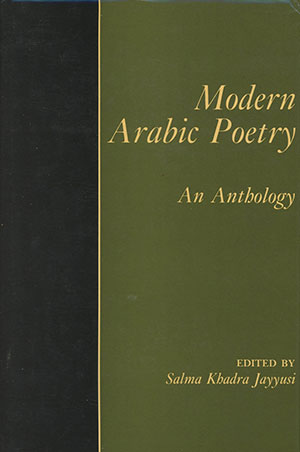 Mahmoud Darwish
Mahmoud Darwish
“Diary of a Palestinian Wound” (Yawmiyyat jurh filastini, 1969)
Modern Arabic Poetry: An Anthology, ed. Salma Khadra Jayyusi
Columbia University Press, 1987
Because a country is not a suitcase. Because it’s an invitation to acknowledge the justice of our claim, an invitation not to use violence, an invitation to see we’ve been removed, an invitation to say we don’t fear being charged of crimes on our land. Because all oppressed peoples welcome spectacle of proof before the world of the injustice they’ve endured. Because nevertheless, we seek peace. Because we create verse not walls. Because it’s time to unsew our wounds. Because we all have rights. Because we cannot be left a wound. Because the time has come to heal” (lines by Richard Oakes and Mahmoud Darwish woven together).—Nathalie Handal, Writer and Professor at Columbia University
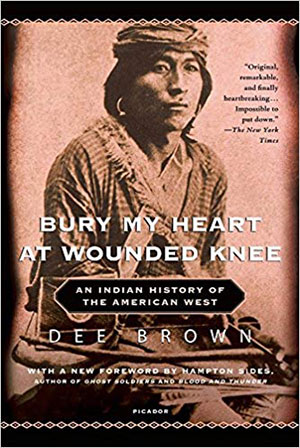 Dee Brown
Dee Brown
Bury My Heart at Wounded Knee: An Indian History of the American West
Holt, Rinehart & Winston, 1971
My life exploded into “adult understanding” with the publication of Bury My Heart at Wounded Knee. Suddenly, the world could not be the same, stay the same. Suddenly, history was changed, understanding was changed. I couldn’t look at anything the same way, not history, not school, not the American land outside my school windows. Combined with another book of 1971 on the 1970 Kent State Massacre, I came to understand in time: this is what important books do—they change your perception and understanding. After this book, I remain broken by knowledge, but grateful for truth.—Nicholas Samaras, Visiting Professor, English Department, Montclair State University
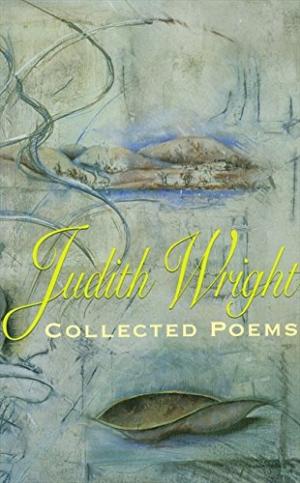 Judith Wright
Judith Wright
Collected Poems, 1942–1970
Angus and Robertson, 1971
As a vegan anarchist pacifist of many years, I have developed my thinking out of many books as well as life-observations and actions. Whether it was Peter Kropotkin’s Mutual Aid, Marx and Engels in the Communist Manifesto, Rachel Carson’s Silent Spring, Carol J. Adams’s The Sexual Politics of Meat, Deleuze and Guattari’s Anti-Oedipus, or Aboriginal activist-poet Jack Davis’s work, in the end I always go back to the environmental-activist consciousness of Judith Wright’s poetry, and her attempts to confront her own colonial culpability and its implications in her work, her speaking out. I look for peace through this.—John Kinsella, Poet and Activist
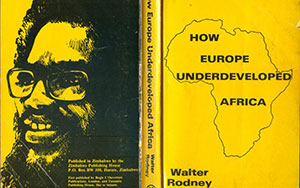 Walter Rodney
Walter Rodney
How Europe Underdeveloped Africa
Bogle-L’Ouverture, 1972
I encountered Rodney’s book in Dar es Salaam, some years after he was assassinated on his return to Guyana. I still own the yellow book, co-published by Tanzania Publishing House and Bogle-L’Ouverture. At the time, I had little access to education but fell into his words like water, like air—felt Africa, around me, thicken with histories of Tunisia, Dahomey, Mozambique, Guinea, and Congo; Britain, Portugal, France, and Germany. Rodney taught me to read the world, to understand why “we” were poor and “they” were rich. I learned new words like comprador and neocolonialism, and how the life of the mind is lived through the body’s struggle.—Najwa Ali, Writer
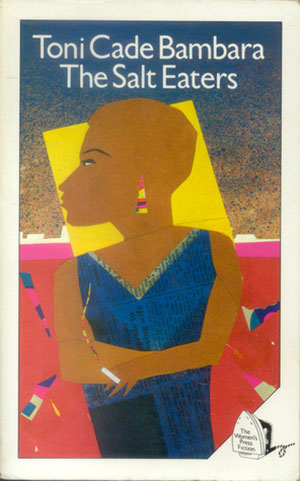 Toni Cade Bambara
Toni Cade Bambara
The Salt Eaters
Random House, 1980
From the first line (“Are you sure, sweetheart, that you want to be well?”) to the end, The Salt Eaters is a call to action. The novel depicts a southern community grappling with the after effects of 1960s grassroots activism and gains won through various civil rights movements, alongside the unspoken pain of those who are still reeling from “the struggle.” Wellness, or healing, is a major theme in the text, and Bambara expertly requires the reader to consider how important self-care is to our own activist and professional lives. The book is underrated, yet timeless.—Kalenda Eaton, Associate Professor of Africana Literature, Clara Luper Department of African & African American Studies, University of Oklahoma
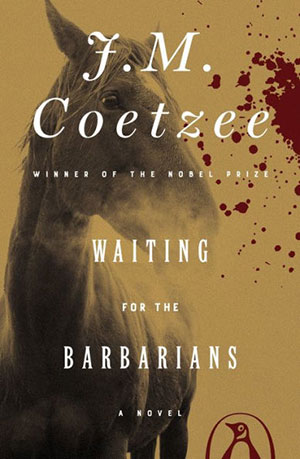 J. M. Coetzee
J. M. Coetzee
Waiting for the Barbarians
Penguin, 1980
“Do you find it easy to take food afterwards? I have imagined that one would want to wash one’s hands,” says the Magistrate to his torturer, Mandel, in Coetzee’s condemnation of gradations of debasement. It could be about Apartheid. It could be about the indecency of any of the wars I have documented. It could be about policemen torturing and murdering black Americans, or the employees of concentration camps for immigrant children. It is above all about us watching, reading the news, then going about our business (“We lived happily during the war,” writes Ilya Kaminsky). A lodestar.—Anna Badkhen, Writer
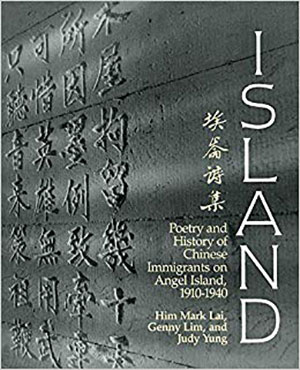 Island: Poetry and History of Chinese Immigrants on Angel Island, 1910–1940
Island: Poetry and History of Chinese Immigrants on Angel Island, 1910–1940
Ed. Him Mark Lai, Genny Lim & Judy Yung
San Francisco Study Center, 1980 / University of Washington Press, 1991
Angel Island, like its twin Alcatraz Island in San Francisco Bay, reveals an invaluable perspective on America’s true history. I have learned greatly from it on how to be a Chinese poet, a Chinese American poet, or, simply, a poet. Instead of seeking literary or social fame and recognition, whether in your native or adopted tongue, you must speak truth and speak it well, even if that means you may end up anonymously carving excluded voices into wooden walls, as many of those Chinese immigrants and detainees once did, on an island named Angel.—Mai Mang (Yibing Huang 麦芒), Poet, Associate Professor of Chinese and Curator of the Chu-Griffis Asian Art Collection, Connecticut College
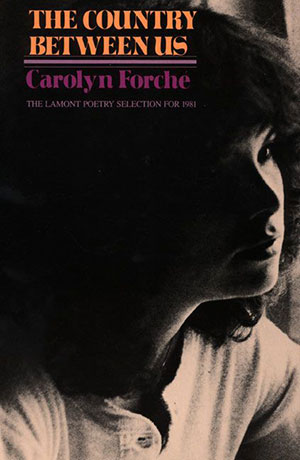 Carolyn Forché
Carolyn Forché
The Country Between Us
Harper & Row, 1981
This is the book that made me understand just how unavoidably the personal is political.—Achy Obejas, Writer
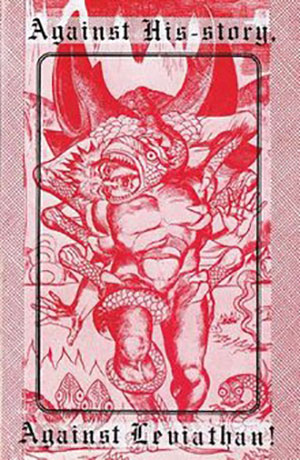 Fredy Perlman
Fredy Perlman
Against His-Story, Against Leviathan!
Black & Red, 1983
Perlman wrestles the enormous history of civilization and the quandaries of his-story in this gripping book. Its telling follows the line of oral histories told around fires, the book shifting in time and place, yet always delivering when it comes to intensive and passionate critiques about the steps taken and the players involved. The focus of the book is in reminding us that civilization has always been a massive force, but with many faces. Every step it faces resistance and will continue to. In the beauty of resistance, we can find hope and our lineage of resistance. Vital work.—Kevin Tucker, Black and Green Press
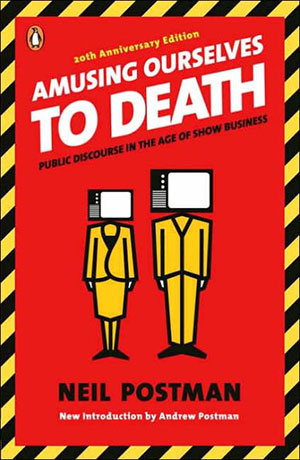 Neil Postman
Neil Postman
Amusing Ourselves to Death: Public Discourse in the Age of Show Business
Viking, 1985
“If you think education’s expensive, try ignorance”—so raged the placards I remember in protests against cuts to school budgets. Without an educated electorate, democracy can’t function; its collapse may be the cost of allowing ignorance to flourish. Postman’s swingeing critique of our media-addled mind-set spelled out the price we pay—individually, nationally, globally—for allowing ignorance the free rein we’ve given it. By showing how our culture has been subverted by the superficialities of entertainment, his book is an endorsement of the need for serious literature and reading—and what we risk by neglecting them.—Chris Arthur, Freelance Writer, Royal Literary Fund Fellow
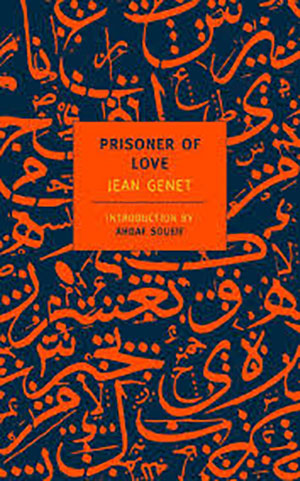 Jean Genet
Jean Genet
Un Captif Amoureux (1986; Eng. Prisoner of Love)
Trans. Barbara Bray
Wesleyan University Press, 1991
In 1991 I encountered Genet’s pensive account of his time “not with but among” the Palestinian fedayeen and the Black Panthers. A queer, wandering act of witness by an old man enraptured by these revolutions, Prisoner of Love scrupulously insists on the inability of language to describe them. Rather, Genet re-dreams conversations, landscapes, a sacred night with a Palestinian mother and son, the searing image of a fingerless corpse in Shatila, crucified alive and mutilated for her jewelry. The more it exposes my own limitations, the more this book deepens my faith in writing and activism as strongholds of love.—Naomi Foyle, Dept of Humanities, University of Chichester
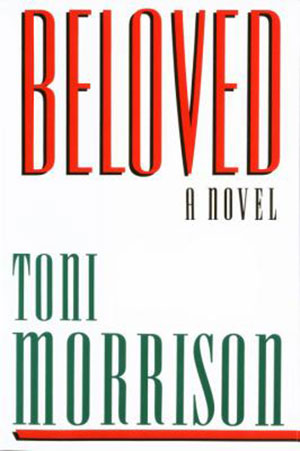 Toni Morrison
Toni Morrison
Beloved
Knopf, 1987
Because it is a shattering and magnificently written indictment of what this ancient race has endured and continues to endure.—Marina Carr, Playwright
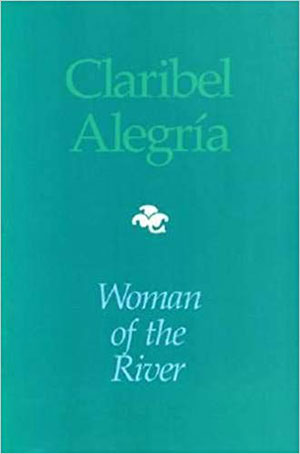 Claribel Alegría
Claribel Alegría
Woman of the River
Trans. D. J. Flakoll
University of Pittsburgh Press, 1989
Considered a “voice for the voiceless,” Alegría wrote of the harsh conditions in Central America and was forced to leave El Salvador for speaking out against the military dictatorship and the U.S. role there. Her poetry and other writings inspired those of us working to end U.S. involvement in Latin America.—Demetria Martinez, Writer, Activist, and Creativity Coach
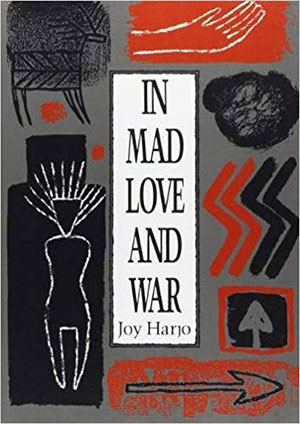 Joy Harjo
Joy Harjo
In Mad Love and War
Wesleyan University Press, 1990
As the book’s title asserts, In Mad Love and War is a collection that firmly establishes love as the only possible answer to violence. In these poems, Harjo offers a vision of resistance and activism that is fierce and kind both. This book has accompanied me for almost thirty years, in my own landscape of terror and dispossession. Its refusal to despair has lifted me up countless times as we continue the long fight for peace, justice, and equality here in Israel and Palestine.—Rachel Tzvia Back, Professor, Oranim College, Galilee
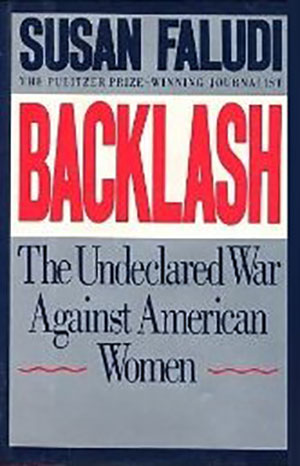 Susan Faludi
Susan Faludi
Backlash: The Undeclared War against American Women
Crown, 1991
As a writer and citizen of a country that was undergoing significant political change, Backlash came as an eye-opener, addressing a topic that had been largely invisible in Hungary. Reading it was a groundbreaking experience for me as a writer, critic, and scholar, greatly influencing the way I think about literature, politics, teaching, and the power of rhetoric. If I look at American and Hungarian politics today, and the situation of women in the world, I think Backlash is still an unrelentingly relevant, brilliant, and brave book, a rare intellectual and authorial feat.—Zsófia Bán, Writer, American Studies Scholar, Eotvos Lorand University, Budapest
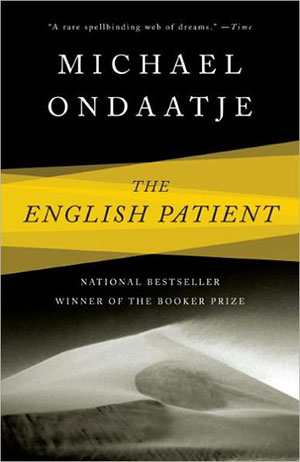 Michael Ondaatje
Michael Ondaatje
The English Patient
Knopf, 1992
It is interesting, I think, that for someone who has experienced extreme forms of nationalism and survived a war of nations, that it was actually a book like The English Patient that ignited, and for many years boosted, my antinationalist activism. Ondaatje painted things I recognized and many more that were hidden from a young mind that found itself in war. Above everything else, perhaps, it was his poetic language that provided a much needed contrast to the nationalist lingo and propaganda in which one can be drowning.—Adnan Mahmutović, Associate Professor, English Department, Stockholm University
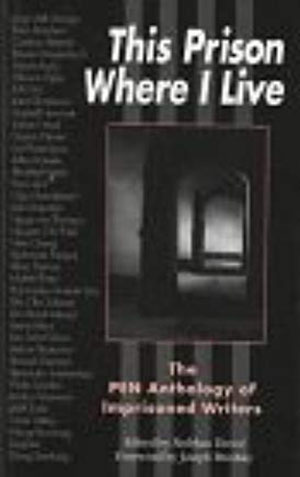 This Prison Where I Live: PEN Anthology of Imprisoned Writers
This Prison Where I Live: PEN Anthology of Imprisoned Writers
Ed. Siobhan Dowd
Cassell, 1996
This Prison Where I Live is a collection of poems, diary excerpts, and stories by writers who are or have been political prisoners around the world. Their work illumines the prison experience and the essential role of creative imagination as a tool for survival. Beginning with Arthur Koestler’s “The Cell Door Closes,” the book inspires and haunts.—Joanne Leedom-Ackerman, Vice President Emeritus, PEN International
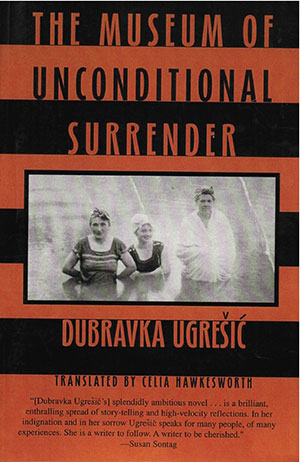 Dubravka Ugrešić
Dubravka Ugrešić
The Museum of Unconditional Surrender
Trans. Celia Hawkesworth
New Directions, 1999
Dubravka Ugrešić has been an inspiration to me for over twenty years. She writes in Croatian, so the fact that I have only read her in translation has led me to question, in blogs and on panels, why there are not more novels and nonfiction (she writes both) by women translated into English. There is an entire world of women living and writing in other countries that is ignored in English—only slightly more than a quarter of translations published are by women. Fortunately readers and publishers are becoming aware of this glaring discrepancy, and things are slowly improving.—Alison Anderson, Novelist and Translator
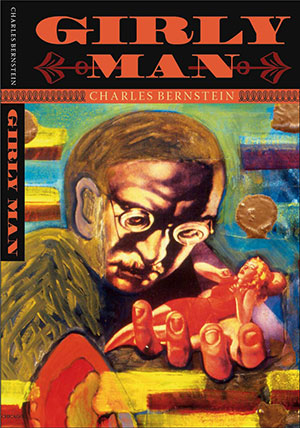 Charles Bernstein
Charles Bernstein
Girly Man
University of Chicago Press, 2006
This poetry book, composed of various forms of etchings from moments of political crisis after 9/11, offers a wonderful example of littérature engagée, proving how literature can confront the current political and historical crisis. With resilience and defiance in thinking through the philosophical and political, Girly Man successfully weaves poetics and politics. Capturing the conundrum of political violence in the age of terror, it invites readers to rethink the space of poetry, the value of art, in the (extra)ordinary moments of our lives as forms of evolution and revolution.—Eun-Gwi Chung, Professor, Hankuk University of Foreign Studies
![]() John Trudell
John Trudell
Lines from a Mined Mind: The Words of John Trudell
Fulcrum, 2008
John Trudell’s courageous poetry connects history to present and future. He was the spokesman of the Native Americans during the takeover of Alcatraz Island in 1969 and devoted his life to activism through poetry and music. Many of his poems such as “Cry Your Tears” speak to us even more in the depressing reality today. His love poems are inspirational and soul-touching. His humanistic perspectives of the Americas and deep concern for the Earth will encourage readers to become more aware of the social-ecological environment we live in and teach us how to fight against injustice with a sense of humor.—Ming Di, Poet, Translator, and Editor
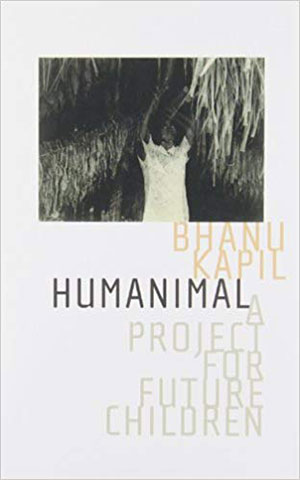 Bhanu Kapil
Bhanu Kapil
Humanimal: A Project for Future Children
Kelsey Street Press, 2009
“I was frightened and so I stopped,” Bhanu Kapil writes at the start of Humanimal. “With all my strength I pushed the glass doors shut. . . . I clicked the spaces closed and then, because I had to, because the glass broke, I wrote this.” For the sake of future children, we read this poetry/narrative about the “Bengali wolf children” and feel what harm whiteness can do (British colonialism did). Even as we want to close the door on it. Because we have to. This is a beautiful book of pain and mourning that reaches/touches, allows the “beginning actions.”—Hazel White, Poet
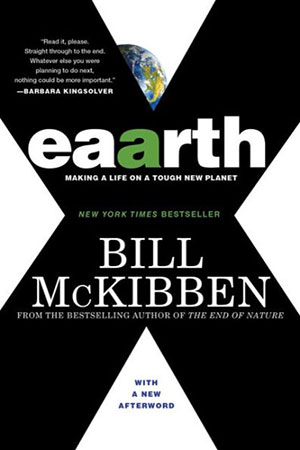 Bill McKibben
Bill McKibben
Eaarth: Making a Life on a Tough New Planet
Times Books, 2010
McKibben’s book on the impacts of climate change and the urgency of our situation here on Planet Earth changed the way I experience the world. At first, I was so depressed I could hardly speak. I remember picking raspberries with my grandchildren and wondering what kind of lives they would have. I would see a beautiful bird and wonder when it would go extinct. The book caused me to face reality and move through a cycle of grief that led from despair to action. I formed an environmental group and we stopped the KXL Pipeline from coming through our state.—Mary Pipher, Writer
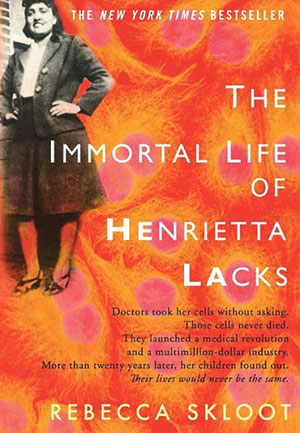 Rebecca Skloot
Rebecca Skloot
The Immortal Life of Henrietta Lacks
Crown, 2010
I continue to be inspired by the layers of The Immortal Life of Henrietta Lacks. Not only did it take more than a decade for author Rebecca Skloot to research and bring this important story to light, but the result is raw and urgent. Here is a story of voice, race, ethics, and determination, combining the personal and political with unrelenting persistence. This story—Lacks’s story—is an excellent reminder of the power of voice, and the absolute necessity of returning voice to the silenced.—Lori A. May, author of The Write Crowd: Literary Citizenship and the Writing Life, and MFA instructor at the University of King’s College-Halifax
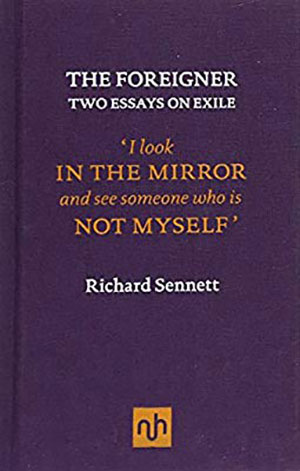 Richard Sennett
Richard Sennett
The Foreigner: Two Essays on Exile
Notting Hill Editions, 2011
The past century and this one have been called the centuries of refugees. The cartographies of the world from Africa, the Middle East, Europe, and the Americas evidence mass migrations of frequently destitute people. I have chosen The Foreigner for its visionary understanding of what it means to be a foreigner, what it means to belong nowhere and at the same time to accept that displacement can be a way of life.—Marjorie Agosín, Professor, Spanish Department, Wellesley College
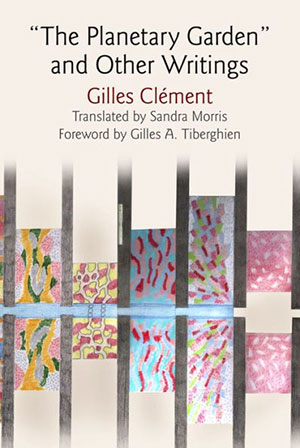 Gilles Clément
Gilles Clément
The Planetary Garden and Other Writings
Trans. Sandra Morris
University of Pennsylvania Press, 2015
An important thinker re: environmental crises, Clément doesn’t address symptoms and solutions but instead proposes rethinking on global scale, recognizing the entire earth as a garden and us as its gardeners. He stresses always working with all organisms and never against any; therefore, balance and biodiversity are key. This book, essentially an ecological manifesto detailing his approach and the philosophy behind it, is a good introduction to his extensive body of work, which touches on areas as diverse as environmental complexity, public space use, and sustainable agriculture. It offers a more demanding and a more complex approach to environmental activism.—Cole Swensen, Professor, Literary Arts Dept, Brown University
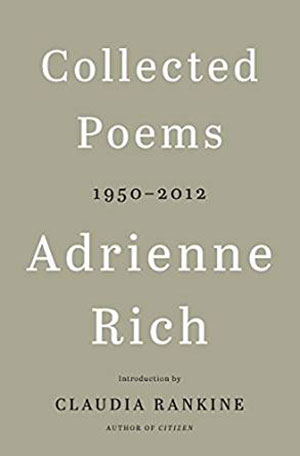 Adrienne Rich
Adrienne Rich
Collected Poems, 1950–2012
Norton, 2016
I first encountered “The Burning of Paper Instead of Children” as a college freshman. Coming from the South, I had never seen a poem like that before, never read a poem like that before. A deeper poet in me woke up, and I have not seen a distinction between my work as a poet and my work as an activist since. A chronological read of the expanse of Rich’s poems, which this collection offers, places us at the line level with a developing and deep activism, a resistance to injustice, and the fight to change the world.—Megan M. Garr, Editor, Versal
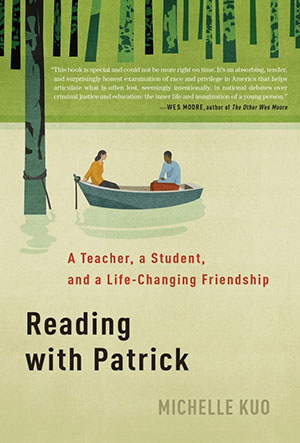 Michelle Kuo
Michelle Kuo
Reading with Patrick: A Teacher, a Student, and a Life-Changing Friendship
Random House, 2017
A clear-eyed, morally rigorous accounting of literature’s potential reach, and its limits. Eschewing the usual humanistic back-patting and lofty platitudes, Kuo embeds engagement with literature in the real world, where material circumstances—education, library access, the intersection of race and class—too often prevent it from playing a role in the lives of those who might need it most. Yet the takeaway is not despair but urgency and hope.—Deborah Smith, Translator, Founder of Tilted Axis Press
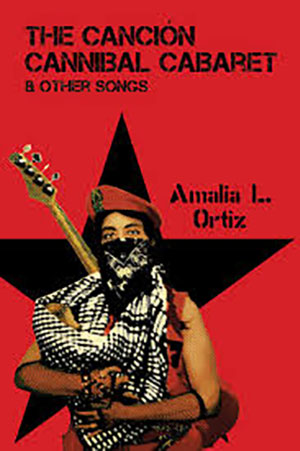 Amalia L. Ortiz
Amalia L. Ortiz
The Canción Cannibal Cabaret and Other Songs
Wings Press, 2018
My all-time favorite, this collection of “post-apocalyptic prose poems and poem songs,” originally subtitled “feminists of a dystopian future repurpose a punk past,” is set in the form of a punk rock musical (sheet music included). The introduction is worth the price of the book!—Rudolfo Anaya, Writer
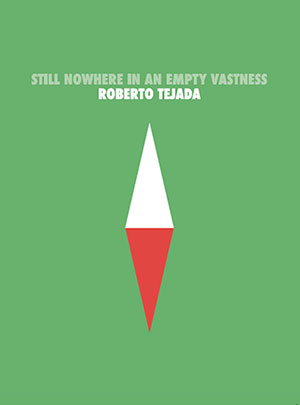 Roberto Tejada
Roberto Tejada
Still Nowhere in an Empty Vastness: History + Metaphor
Noemi Press, 2019
Still Nowhere in an Empty Vastness is literary and cultural analysis at its best, involving as it does expressions from history, social activism, political policy, poetry, the visual arts, and more. Roberto Tejada’s work induces me to think, to make connections, and to act. And since I am an eighty-two-year-old writer, my activism these days is almost entirely in my writing. In this book Tejada reaches way back and also imaginatively forward, opening doors that would otherwise remain closed.—Margaret Randall, Poet, Essayist, Oral Historian, Translator, Photographer, and Social Activist


